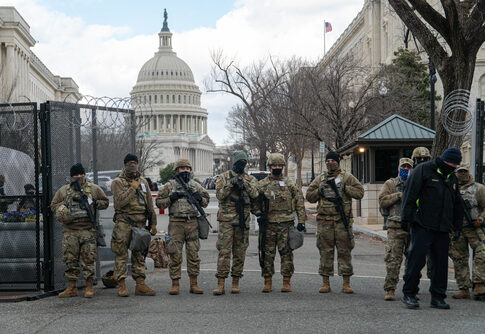The Trump administration’s deployment of National Guard troops to process ICE deportation paperwork in 20 states marks an unprecedented escalation of federal power that promises to reshape immigration enforcement—and stokes fierce debate about the role of the military inside our borders.
Trump Administration Invokes National Guard to Expedite Deportations
The Trump administration has begun deploying National Guard troops to immigration detention centers in at least 20 states, a sweeping move that aims to accelerate the processing of detainees for removal from the United States. This marks the first known instance of using military resources for interior deportation paperwork, representing a coordinated effort between federal agencies and Republican-led states. The ICE memo, dated July 30, detailed integration of Guard personnel into “alien processing” roles at high-volume detention facilities.
Officials say the deployment is a direct response to longstanding frustrations with backlogs and inefficiencies created by years of lax enforcement and bureaucratic red tape. By mobilizing National Guard units, the administration intends to streamline removal operations and fulfill campaign promises of the largest deportation program in U.S. history. States such as Texas, Florida, and Georgia are among the first to receive additional Guard support, signaling a broad, sustained campaign to secure the nation’s interior against illegal immigration.
Legal and Political Controversy Over Military Role in Civilian Enforcement
The use of National Guard troops for processing deportation paperwork has drawn sharp criticism from civil liberties groups, who argue this sets a dangerous precedent for the militarization of domestic law enforcement. Legal experts have raised concerns about the erosion of constitutional protections, warning that expanding military involvement in civilian affairs could undermine due process and civil rights. Advocacy organizations are preparing legal challenges, while the administration insists the action is both lawful and necessary to restore order after years of porous borders and policy gridlock.
Historically, National Guard deployments under previous administrations were limited to border surveillance and logistical support, never extending to direct involvement in interior ICE operations. Critics claim the current approach signals an authoritarian turn, but supporters counter that extraordinary steps are justified given the magnitude of the border crisis and the failures of the prior administration. Congressional debate continues over additional funding and expanded legal authorities to sustain these efforts.
Impact on Immigrant Communities and Broader Society
The immediate effects include faster processing and a likely increase in deportation numbers, prompting fear and uncertainty in immigrant communities across the country. Economic concerns are also surfacing, with some industries warning of potential labor shortages as removals accelerate. Social tensions are rising as advocacy groups mobilize protests and legal challenges, while state and local law enforcement agencies coordinate with federal partners to implement the new policy. The expansion of detention facilities and contracts further signals a long-term commitment to mass removals.
Beyond the immediate operational impact, the deployment is expected to trigger a wave of constitutional litigation, as legal advocates challenge the expansion of military roles in domestic affairs. The policy also intensifies the broader political battle over immigration, with Republicans hailing it as a return to law and order and Democrats decrying it as a threat to civil liberties and family stability. The administration’s actions have solidified a national divide, positioning strong borders and enforcement as cornerstones of conservative governance in the post-Biden era.
Expert and Stakeholder Reactions Reveal Deep Divides
Leading immigration and legal experts acknowledge the unprecedented nature of the move. Joseph Nunn from the Brennan Center described the deployment as the first of its kind for interior immigration enforcement. Supporters argue that decisive federal action is the only way to address systemic failures and restore American sovereignty at a time when globalist policies and open borders have fueled chaos. Meanwhile, advocacy groups warn that this path risks normalizing military involvement in civilian life and eroding the foundational principles of the Constitution. As implementation continues, the nation’s eyes remain fixed on the balance between national security, constitutional limits, and the rule of law.
Congress’s ongoing deliberations over funding and legal authorities will likely determine the long-term trajectory of this policy. For conservative Americans frustrated by years of unchecked illegal immigration and government overreach, the Trump administration’s actions represent a long-awaited course correction—one that prioritizes the rule of law, secures the borders, and signals to the world that American sovereignty will not be surrendered lightly.
Sources:
From Day One, Trump’s Immigration Agenda Has Grown More Extreme, ACLU, June 6, 2025
Trump promised mass deportations. Here’s one way they could happen, Texas Tribune, January 17, 2025


